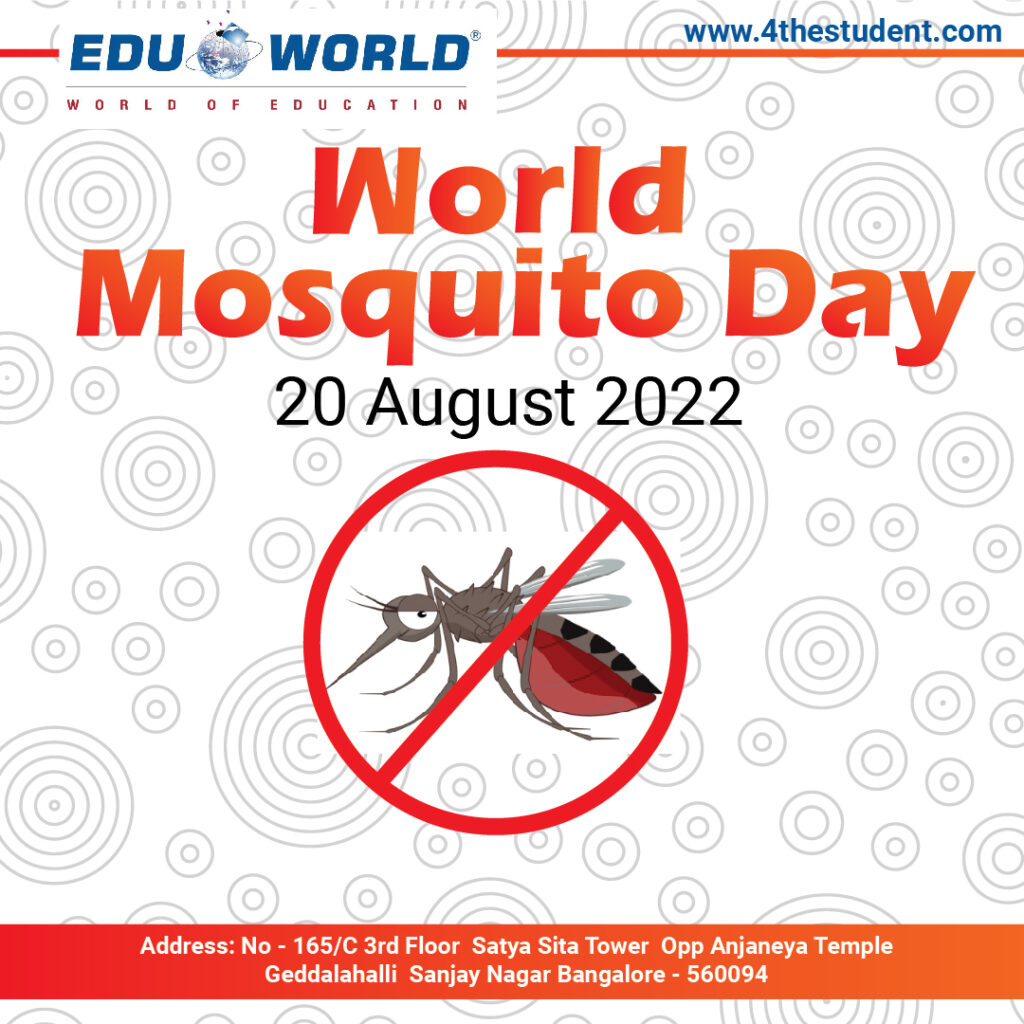World Mosquito Day, recognized each year on August 20th, marks the anniversary of the discovery that mosquitoes transmit the parasite that causes malaria. On this day in 1897, sir Ronald Ross discovered the malaria parasite in the stomach tissue of an Anopheles mosquito. World Malaria Day 2022 will be marked under the theme “Harness innovation to reduce the malaria disease burden and save lives”. No single tool that is available today will solve the problem of malaria. World Mosquito Day honours the date when Sir Ronald Ross, a British army surgeon working in India, proved that mosquitoes transmit malaria by identifying pigmented malaria parasites in mosquitoes that fed on an infected patient. Since 2000, a set of transformative tools helped save 7.6 million lives, enabled elimination in 25 countries, and significantly drove down the global malaria burden. The current set of tools will not be enough to eradicate malaria, especially as growing insecticide and drug resistance threatens prevention, treatment, and elimination of malaria. We need ongoing investment in transformative tools to successfully eliminate malaria within a generation. Mosquito nets do not sufficiently protect people in places where some malaria transmitting mosquitoes bite during the day, seasonal malaria chemoprevention does not work if families cannot access the intervention because they live in remote or hard-to-reach locations, or sue to instability or conflict. We need innovation for streamed lined medications to treat malaria more efficiently and effectively, to help ensure a diagnosis does not mean a death sentence. Powerful medicines are limited in their impact if regimens are complex, costly or challenging to follow, or if emergent resistance renders them ineffective. Insecticide and drug resistance both pose real threats to malaria elimination. The continued efficacy of ACTs is threatened by the emergence of resistance to artemisinin. This has been observed in the Greater Mekong Subregion, and is now increasingly seen in Africa. The partially effective RTS, S vaccine is the first vaccine against malaria in children under 5 and is currently in pilot implementation in 3 countries in Africa. There still is a need for a highly effective, all vaccine. Other vaccines are being researched, including the R21 vaccine, which uses a similar platform as RTS, S as well as vaccines using other platforms such as mRNA and monoclonal antibodies. We need innovation for streamlined interventions that can more efficiently and effectively treat malaria, to help ensure a diagnosis does not mean a death sentence. To ensure countries have options from which to choose which tools will meet their various needs, we need continuous investment in complementary and transformative tools including:
- Vaccines
- Ney antimalarial treatments
- New vector control tools such as attracting targeted sugar baits
- Ultra-sensitive rapid diagnostic tests
- Genetically based vector control.
Edu world stands for developing and implementing innovative strategies to eliminate malaria also are critical to global success. China’s recent malaria-free certification propelled by its innovative 1-3-7 day detect, treat and control transmission strategy- was instrumental in China’s success against malaria. Other countries are adopting and tailoring similar strategies to address their specific challenges, using innovative approached and the right mix of complementary tools to accelerate progress against this preventable and treatable disease.




